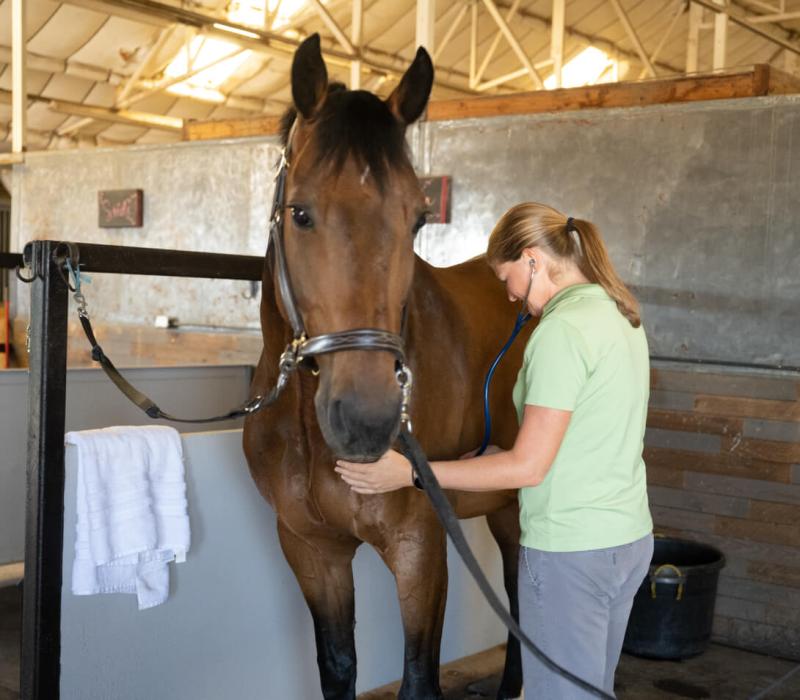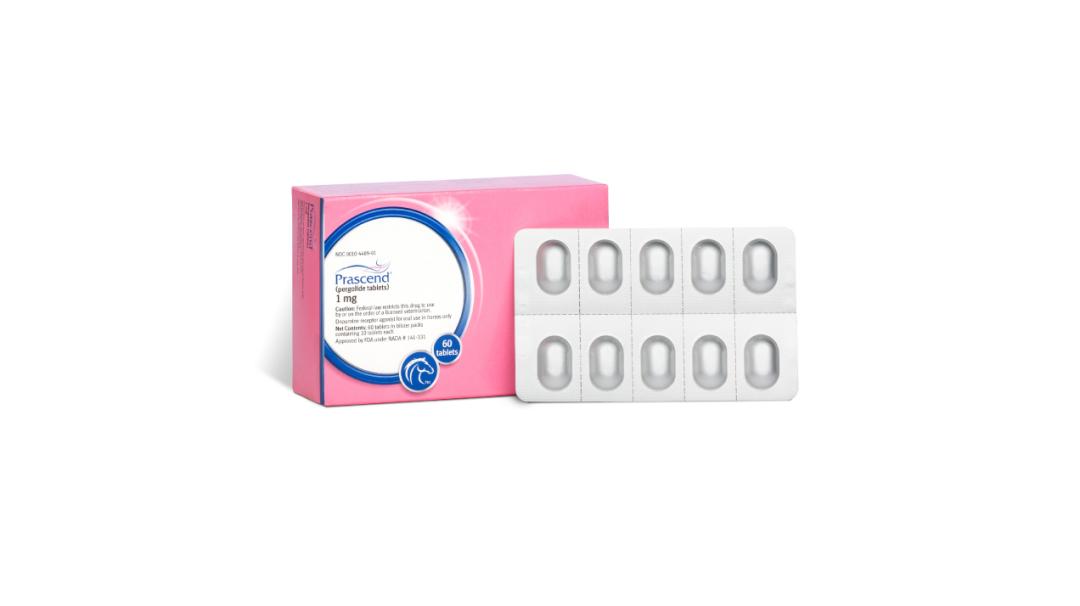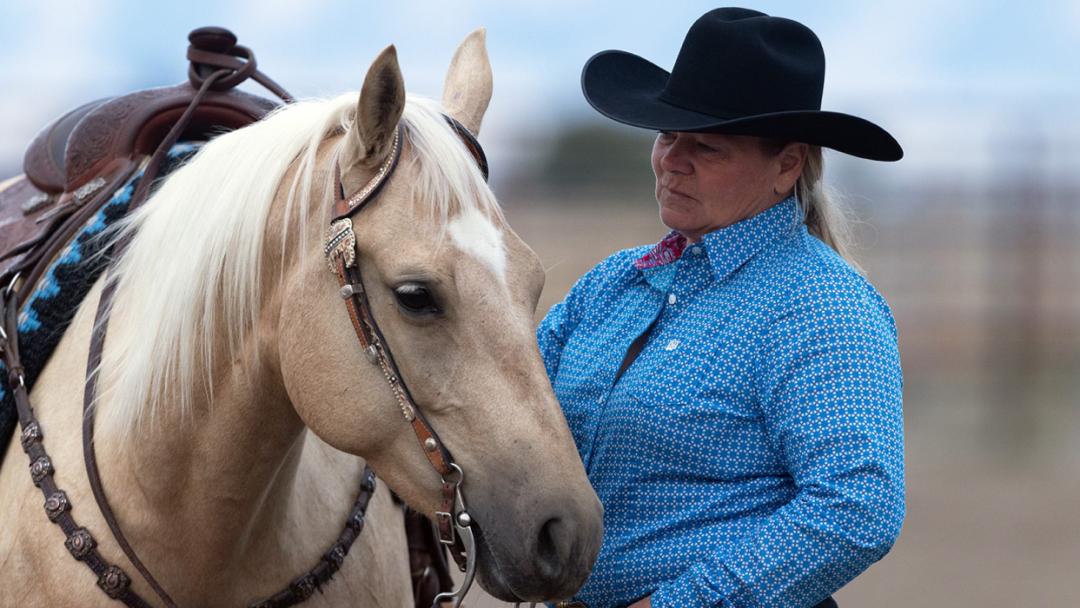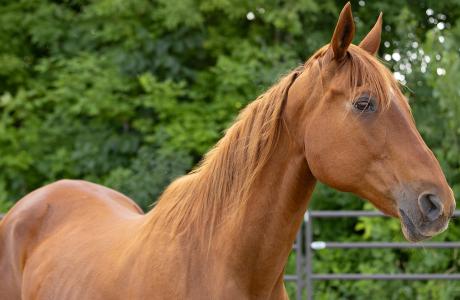Endocrine diseases can be overwhelming, but recognizing the clinical signs and working with your veterinarian make caring for the whole horse more manageable.


What to Know About Endocrine Health
The equine endocrine system is a collection of hormone-producing organs that control many bodily functions. Changes to this system can lead to hormone imbalances and disorders like pituitary pars intermedia dysfunction (PPID), formerly known as equine Cushing’s disease. Another common endocrine disorder in horses is equine metabolic syndrome (EMS). Learn more about the differences between EMS and PPID here.


Recognize the Early Clinical Signs of PPID
Signs of PPID can be subtle: Lethargy, recurrent infections and increased thirst might go unnoticed without a watchful eye looking for them. Recognizing the early clinical signs can help give your horse back a happy and healthier life.
Early Clinical Signs of PPID
- Change in attitude/lethargy
- Decreased performance
- Regionally delayed hair coat shedding
- Loss of topline muscle
- Laminitis
- Abnormal sweating
If you see any of the signs, contact your veterinarian right away.
Zip's PPID Journey
Hoof soreness, loss of appetite—those were the first signs horse owner Monique Smith noticed in Zip. Watch the full video to see how she handled it.


Care for the Whole Horse
When it comes to endocrine disease in horses, treating the whole horse is important. Some endocrine diseases may not be able to be managed with diet and exercise alone. Work with your veterinarian to create a whole-horse management plan that addresses:
- Pharmaceutical treatment, such as
PRASCEND® (pergolide tablets), for horses with PPID - Proper diet and exercise
- Proper vaccination
- Deworming regularly
- Regular care from hoof to teeth
- Body clipping, if needed
IMPORTANT SAFETY INFORMATION: PRASCEND tablets should not be crushed due to the potential for increased human exposure. Keep PRASCEND in a secure location out of reach of dogs, cats, and other animals to prevent accidental ingestion.


The Most Trusted PPID Treatment
Using PRASCEND® tablets — veterinarians’ most trusted treatment — as part of your PPID management protocol can help control the clinical signs of PPID.1
IMPORTANT SAFETY INFORMATION: PRASCEND is for use in horses only. PRASCEND has not been evaluated in breeding, pregnant or lactating horses. Treatment with PRASCEND may cause loss of appetite. Most cases are mild. PRASCEND is contraindicated in horses with hypersensitivity to pergolide mesylate or other ergot derivatives. Not for use in humans. Do not ingest the product. PRASCEND tablets should not be crushed due to the potential for increased human exposure. Pergolide, like other ergot derivatives, may cause emesis, dizziness, lethargy or low blood pressure. Pregnant or lactating women should wear gloves when administering this product. Store this product separately away from human medicinal products, and handle this product with care to avoid accidental ingestion. Keep PRASCEND in a secure location out of reach of dogs, cats and other animals to prevent accidental ingestion or overdose. Adverse reactions may occur if animals other than horses ingest PRASCEND tablets. Refer to the package insert for complete product information.
Related Articles
Reference
1 PRASCEND [Freedom of Information Summary]. St. Joseph, MO: Boehringer Ingelheim Animal Health USA Inc. 2024.
PRASCEND® is a registered trademark of Boehringer Ingelheim Vetmedica GmbH, used under license. ©2025 Boehringer Ingelheim Health USA Inc., Duluth, GA. All rights reserved. US-EQU-0098-2024




